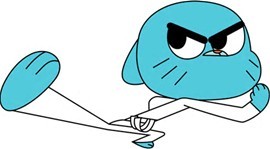Kicking But(t)

Our practice looks beneath
the passing thoughts that seem so real.
Clinging to them brings pain.
Letting them come and go brings peace.
Lively music and good food
may capture our attention,
but speaking of this path
is not exciting.
People would rather try to make things work,
look for distractions,
and listen to empty promises.
We turn to this path
only when we have exhausted all other paths.
The Tao Te Ching, Chapter 35 – trans. William Martin
Perhaps the most important short word in the English language is the ubiquitous, “but.” It is sometimes useful in a literary sense to express a contrast, as in, “He stumbled, but didn’t fall.” BUT… it is its use as a expression of justification, explanation, and mitigating circumstances that is most illuminating to our path: “I’d love to live a simple life, but I must provide a good home for my family.” “It would be a wonderful thing to do, but I could never spare the time.” “I’m going to write a book someday, but first I have to earn enough money to take a month off.” “Meditation would be very soothing for me, but my household is too noisy and too chaotic.” Siddhartha Gautama, the one called the Buddha, consistently heard the complaint, “I would really like peace and serenity, but I can’t be expected to stop wanting things.” And then there is the classic line from the Christian Bible; “I’d love to follow you Jesus, but first I have to attend to some family obligations.”
Whenever you use a sentence includes the word, “but,” pay close attention to the words that follow the, “but.” They are the important ones. They are crucial signposts along your Path. The words before the “but” may express some authentic desire or heartfelt longing, but it is the words that follow that illuminate the process of mental conditioning that is dominant in your life.
Let me illustrate. Fifteen minutes ago I was musing on this topic and writing in my journal. I wrote about my strong feelings surrounding this and then wrote this sentence: “I would like to write an essay about this ubiquitous “but”, but I don’t want to be perceived as strident, unaccepting, unhelpful, or not nice.” I took a moment to re-read what I had written and, lo and behold, there was my own but, hanging out naked for all to see. So I opened up a new document and began writing this essay.
One of the most powerful obstacles to my writing life has been the conditioned need to appear helpful, wise, accepting, and nice. So I often mute my true feelings and hide them behind words that mitigate, excuse, overlook, and let off the hook. We all have fears, needs, and conditioned habits that unconsciously set the course for our life and insist that they know exactly how we should live our lives, what we can and cannot do, and who we must and must not be. Until we see these conditioned thoughts and mental process for the stumbling blocks they really are, we will always be controlled by the “buts” of our life. Go back to the words before the but and you may see what is arising from your deepest heart; that which arises before the but.
I live a simple life amidst incredibly beautiful natural surroundings. I live with a spouse whose love permeates my life right down to my bones. I do work that I love, and only the work that I love. I have none of the outward markers of financial success and security that drive our culture, but I am blissfully content to live and die in the life I have chosen.
I am living this life because I kicked but. I kicked it over and over again through the years and I am still kicking but. When are you going to start?



